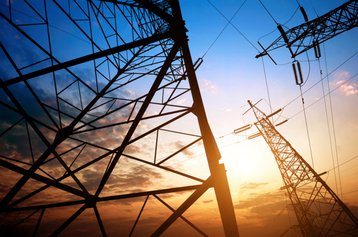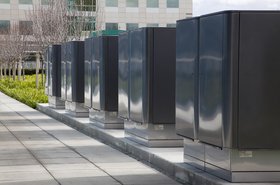Ireland's electricity regulator has held off from a temporary ban on data center projects, but given grid operators the power to challenge data centers to provide their own power at times of need.
Environmentalists and political parties including the Social Democrats and People Before Profit have called for a moratorium on future data center projects, because the state-owned utility EirGrid has warned that they already use more than 10 percent of the country's electricity supply, and this could grow to 30 percent by 2030, potentially causing "rolling blackouts" and making it impossible for the country to meet its targets to decarbonize its grid so that 80 percent of the nation's electricity must come from renewable sources by 2030.
Instead of a moratorium, the Commission for Regulation of Utilities (CRU) has said that there may be limits on where data centers can be built, and they may be asked to provide onsite dispatchable energy storage or generation equivalent to their demand, so they can ease strains on the grid, or take themselves off the grid completely.
However, critics have pointed out that this onsite energy storage will almost certainly be based on gas or diesel, thereby contributing to climate change.
Turning down productivity
"We're allowing EirGrid and ESB networks [the two major Irish utilities] to assess data center connection applications on the basis of a number of criteria," said CRU commissioner Jim Gannon on RTE. "That would include location, which would consider where there is an existing excess of generation but also where the transmission infrastructure is particularly strong. Separate to that, we're also tasking data centers with bringing some solutions to the table."
When data centers apply for connection, they will be "challenged" to ensure they don't impact too much on the security of supply, said Gannon. As well as providing on-site generation, data centers will be invited to consider options including voluntarily "turning down their productivity" when required, as well as considering installing options to store excess wind energy which can be used at peak times, said Gannon.
Although onsite generation will generally be from fossil fuel sources, the CRU has not been "prescriptive" of what technologies data centers should use onsite, said Gannon, noting that data centers are already subject to internal pressure to move to renewable sources: "They have their own environmental and ESG targets, which will drive them in that lower carbon direction," he said, adding that data centers will be free to use natural gas, battery power or stored energy from excess wind power, or transitioning to hydrogen in the future.
The CRU said it was not an acceptable option to do nothing, as this would likely result in a situation where "demand would outstrip available supply at the peak and would result in load shedding and consumers facing rolling blackouts."
However, a moratorium was not a "suitable response," given the constructive input from the data center industry. Instead, the regulator has tried to find something "appropriate, justifiable and proportionate," which would challenge the data center industry to up its game.
EirGrid will report every six months, however, and tougher measures are still on the table if required, according to the full report.
Commenting to RTE, Minister for the Environment Eamon Ryan said: "Data centers bring benefits to the country, but it can't be at the expense of other sectors, or of us meeting our the climate targets - and they know that."




